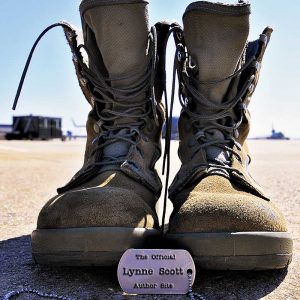Creating a novel is a little like invading Europe in World War II. Scratch that – it’s a LOT like invading Europe. It’s great to have a plan, but in the end, you have to adjust to the conditions you’re facing and get the job done.
Planning the invasion. We’re going to land forces at the following places, and the final objective is to sweep across Europe and capture Berlin. For a writer – this is the concept stage. My concept for the book I’m working on: A USMC special operations team posing as embassy guards, working with their sister unit of Royal Marines, are hunting terrorists. Drop a female Marine in to take care of the armory and weapons. Add a problematic Major who hates women and doesn’t realize that this small group doesn’t work for him. Send them all to an embassy function where (unbeknownst to our heroes) a group of terrorists plan to kidnap an arms manufacturer who has created a new tactical weapon
Start the assault by firing a barrage of artillery at the target from a great distance. Think World War II battleships at sea firing their big guns at a target on land. Their job is to take out as many enemy defenses and do as much damage as possible to soften up a target for a beach landing. This is the initial workup, which is a where I search for a specific target so I can make this happen. What does this team do? Who would they work for? Is this a plausible way to make this happen? Is there a love story? What weapons do USMC special ops carry? What did the arms manufacturer make that someone wants?
D-Day – Parachuting behind the lines, taking Pointe du Hoc, and the beach landing. That’s the first three chapters. You’ve got to get those nailed down. There’s a lot of author blood spilled in making sure that these work. They are somehow the easiest and the hardest to write. You begin with the leap of faith in chapter one and secure the roads, communications, and try to control the front. Then you scale the cliff and take the high ground. And chapter three is the last act of bravery. Much like the end of day one of a beach landing, you have to have your people into position, and have landed enough equipment and supplies to support them. If your reader isn’t hooked by the end of chapter three, then you failed miserably!
Trying to get out of the hedgerows. That’s the next three chapters. You’ve showed up, but you have to get your forces through the first set of problems you face. No one realized just how much trouble those hedgerows were going to be, just as the author didn’t realize how much trouble it was going to be to figure out the details of her own big picture. What started out as a simple concept, “… a group of terrorists with a bomb…” became a major sticking point for me. Just who were these nefarious individuals? What is their goal? And how are they going to carry out their plan? My Marines may not know, but I have to have some idea or I just sound like a one of those losers (liars) that show up in every bar, “When I was a sniper in the ‘Stan.” I randomly (okay – stupidly) picked an ethnic group who would be available in my location and moved on, since their ideals and motives weren’t required in these chapters. Suddenly, I was bogged down in the hedgerows trying to learn about something as basic as bombs and what explosives would this group use. How do you blow up something? How much plastique is enough? Does it leave a residual smell? How big of an explosion is too big? Leaving a crater the size of a football field would not bode well for my poor Marines who were present during the blast. It took a little while to figure out how certain things worked before I could break free and race across France.
Operation Market Garden becomes A Bridge Too Far. This is where the brilliant idea of a quick finish to the war, meets the reality of a stubborn enemy and the failure of a plan to properly come together. At about a third of the way into the book, I figured out that I had some real problems. I hadn’t done enough research on my terrorists and while my concept and early battle plans had met with good results, I may have grossly underestimated my capabilities to accomplish the task in the time allotted. For my novel to be completed on time everything had to go right – and it didn’t. I withdrew to reconsider my options, and while the story (much like the war) progressed on one front, I was definitely struggling on the other.
The Big Slog. As the armies push their way across the continent it becomes a logistical nightmare to keep everything moving. This is the middle of the book and it’s work! This is the part where I often ask the big question – What the hell was I thinking? The excitement of the opening days has worn off, your nose has been bloodied a time or two, and now you have to get it together and get the job done.
The Battle of the Bulge. The Allies are caught by surprise, surrounded, cutoff, and under siege. But they refuse to surrender even though they have taken massive casualties. The allied commander’s response to the German demand for surrender was simply, “Nuts!” General George Patton turns his forces to Bastogne to rescue that unit. Well, there I was at the three quarter point of this project. I was on track and racing forward, the words were flying and the plot was working – and then I had the “aw s***” moment. That’s the point where I realized that I had made a tactical error in the plot. I’d gotten ahead of myself and there was simply no way to write myself out of it in the future chapters. I couldn’t go forward, and my self-imposed deadline of sixty days was running out.
About this time, I was praying for Patton to climb upon the 55-gallon drum in the muddy intersection of my brain and take command. I desperately needed someone in riding jodhpurs, carrying pearl handled Colts, and in possession of an ugly damn dog to untangle the traffic jam in my plot. I waited about three days, cursing my plot, my characters, and my foolishness. It was disappointing to realize that I wasn’t going to meet the original deadline, and I spent a day moping around and feeling sorry for myself. I considered putting the book away and moving on with other projects, but I really didn’t want to do that. I like to finish what I start, and just like the men in World War II, I had to accept that I was in it for the duration. My wimpy side told me to throw in the towel, but I managed to channel Brigadier General Anthony McAuliff for about thirty seconds and beat my wimpy side down while screaming, “Nuts!” Fortunately, the neighbors are used to me yelling at myself and didn’t call the police. Then I accepted that Patton wasn’t coming to save me, and I’d have to untangle my own damn mess. So, I gave myself a good slap in the face, picked up my rifle, and went back into the war. I fixed my issues by taking a week out and reworking the timeline and adjusting two of the characters. The rewriting was easy and painful all at once.
Crossing the Rhine. Finally, everything starts to go right and the enemy resistance collapses. All the hard work culminates in a rush to Berlin. This is the happy part of the writing. You know how it ends and the last three chapters fly from your fingertips. All you need to do is come up with the right last line.
V.E. Day. The war is over. The troops aren’t going home quite yet, but the bloody part is done and the clean-up and healing can begin. I, much like the poor soldiers, have collapsed in a grungy heap. All I want is a shower, a decent night’s sleep, and a real meal. There will be months of rewrites and edits before I can declare this book complete.
But the war of getting a first draft down on paper has been won.

